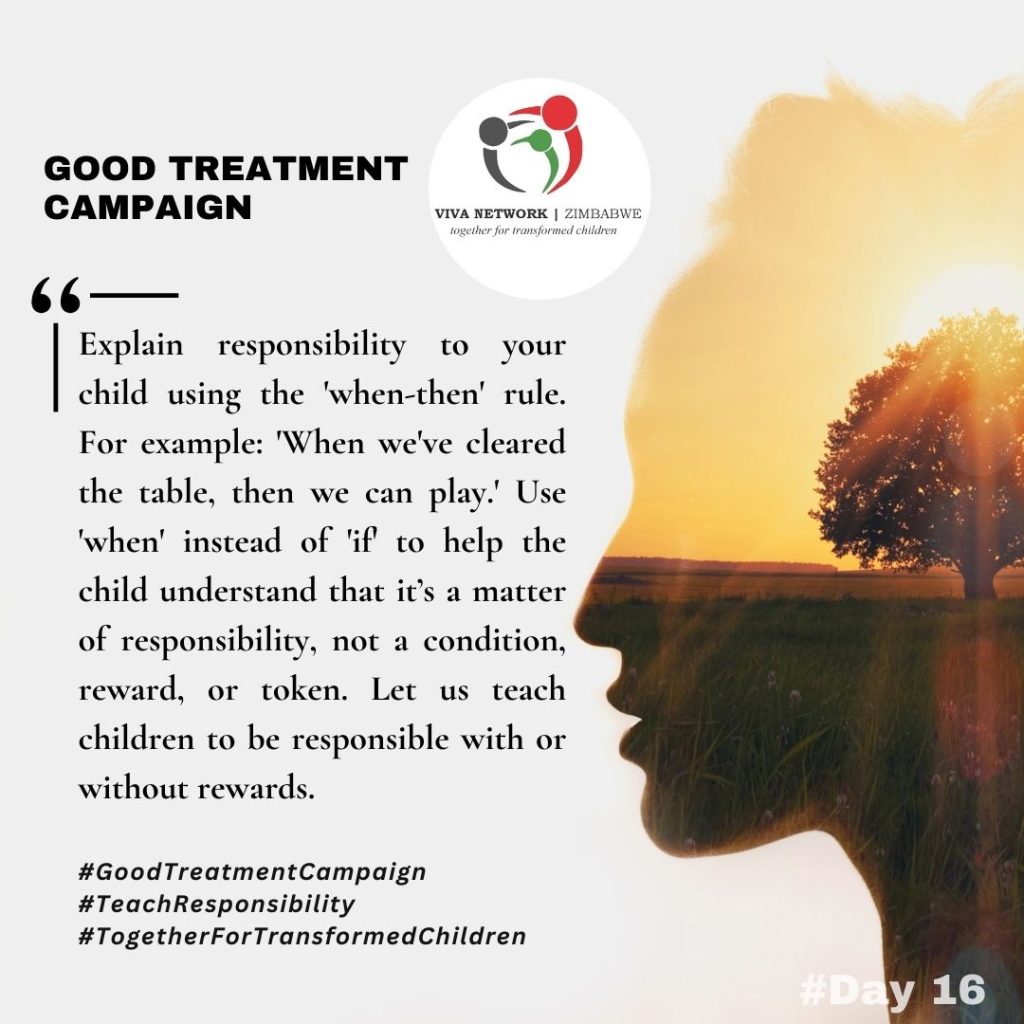Use the “When-Then” rule to teach responsibility

On Day 16 of the Good Treatment Campaign, we highlight a simple but powerful parenting tool for instilling responsibility in children: the “when-then” rule. This method helps children understand that responsibility is not about conditions, rewards, or punishment, it is about learning that actions have outcomes.
How the “When-Then” Rule Works
Instead of saying “If you clear the table, you can play,” parents can say: “When we’ve cleared the table, then we can play.”
This small shift communicates that completing responsibilities is a natural and expected part of life, not a negotiable option. It also teaches children that responsibilities come before privileges.
Today’s Key Message
“Explain responsibility to your child using the ‘when-then’ rule. For example: ‘When we’ve cleared the table, then we can play.’ Use ‘when’ instead of ‘if’ to help the child understand that it’s a matter of responsibility, not a condition, reward, or token. Let us teach children to be responsible with or without rewards.”
Why This Matters
The “when-then” approach helps children to:
- Understand responsibility as a daily habit
- Build discipline and consistency
- Avoid entitlement or reward-based motivation
- Learn the natural order of actions and consequences
Call to Action
On this sixteenth day of the campaign, let us model responsibility in the way we speak and act. By teaching children through simple practices like the “when-then” rule, we help them grow into dependable and self-motivated adults.
Keep following the Good Treatment Campaign daily this September as we continue sharing practical lessons that build a culture of responsibility, care, and love for children.
#GoodTreatmentCampaign #TeachResponsibility #TogetherForTransformedChildren
